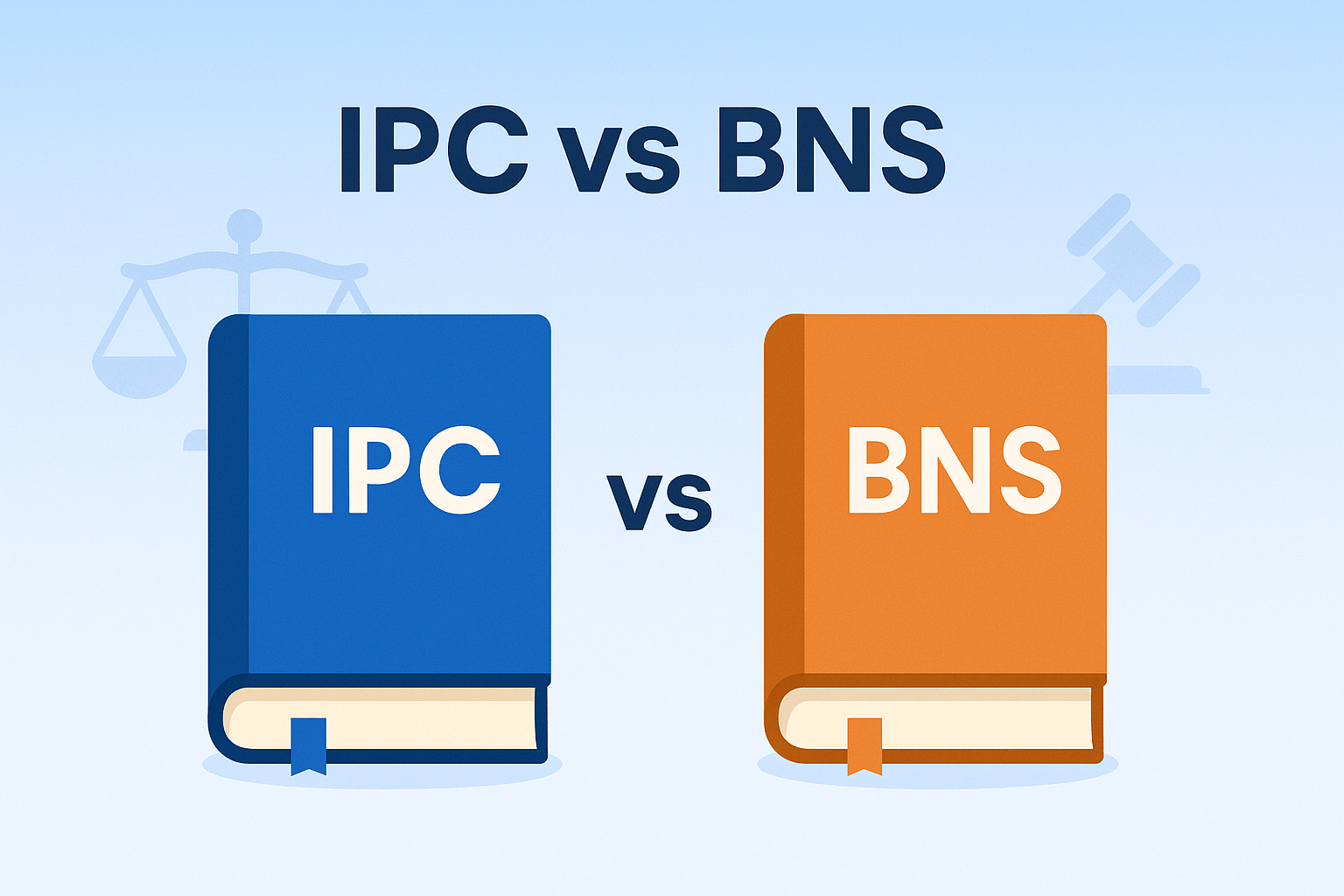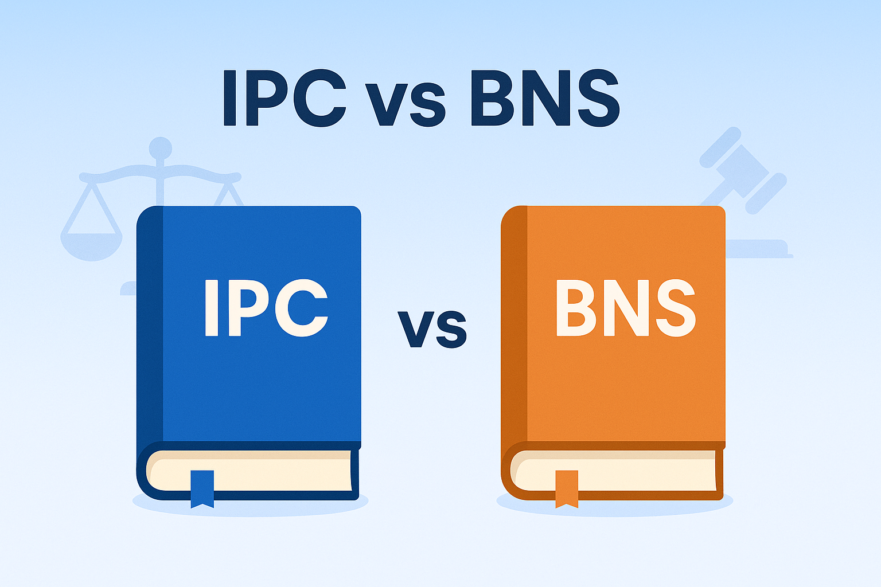
📌 Key Topics in this Blog
- 📘 Background of IPC
- 📗 Introduction of BNS
- 📝 Why IPC Remains Relevant
- ⚖️ Key Differences Between IPC and BNS
- 🔗 Topic-wise Comparison Links
- ❓ FAQs About IPC and BNS
- 📚 Explore More Resources
📚 BNS vs IPC: Comprehensive Comparison for Judicial Aspirants
Indian Penal Code (IPC) has been the backbone of criminal law in India since its enactment in 1860. It covers various offences and provides a framework for criminal liability. With the introduction of the Bharatiya Nyaya Sanhita (BNS), legal aspirants and practitioners now have a modernized legal framework that revisits several provisions of IPC, offering updated definitions, penalties, and procedural clarity.
🔹 Background of IPC
The IPC provides detailed sections on offences like murder, theft, sexual offences, domestic cruelty, and more. It has been instrumental in shaping India’s criminal jurisprudence and remains highly relevant due to its extensive case law.
🔹 Introduction of BNS
BNS was introduced to modernize and streamline criminal law, bringing clarity and consistency in sections that were ambiguous or outdated in IPC. While BNS retains the essence of IPC, it also revises certain provisions to make them more relevant for contemporary legal scenarios.
🔹 Why IPC Remains Relevant
- Extensive judicial interpretation and case law references.
- Transitional provisions ensure continuity between IPC and BNS.
- Understanding IPC is critical for judicial exam preparation and legal practice.
🔹 Topic-Wise Comparison Links
For detailed topic-wise comparisons, check out our ancillary blogs:
- 📌 Definitions & General Clauses: IPC vs BNS
- 📌 Murder / Culpable Homicide: IPC vs BNS
- 📌 Rape Laws: IPC vs BNS
- 📌 Dowry Death & Domestic Cruelty: IPC vs BNS
- 📌 Other Key Sections: IPC vs BNS
🔹 FAQs About IPC and BNS
IPC is the historical criminal code of India, whereas BNS is a modernized legal framework revising several IPC provisions for clarity, consistency, and relevance.
Yes, many IPC sections remain valid due to transitional provisions. However, BNS introduces revised definitions and penalties for certain offences.
IPC has extensive case law and remains a core syllabus for exams. Understanding IPC helps aspirants interpret BNS effectively as well.
No, BNS revises and modernizes certain IPC provisions but does not entirely replace IPC. Both codes coexist, with BNS updating outdated or ambiguous sections.
Check our ancillary blogs linked above for detailed comparisons on definitions, murder, rape, dowry laws, and other sections.
Focus on understanding core IPC sections first, then review BNS revisions. Use topic-wise comparison blogs for detailed analysis.
📘 Stay Ahead with Delhi Law Academy!
Get access to free monthly current affairs, read our insightful blogs,
and explore free study resources prepared by experts at DLA Jaipur. 🚀
💡 Frequently Asked Questions on Dowry Death (Section 304B IPC)
• Where death of a woman
o is caused by any burns or bodily injury or
o occurs otherwise than under normal circumstances
• within seven years of her marriage
• and it is shown that
o soon before her death
o she was subjected to cruelty or harassment by her husband or any relative of her husband
o for, or in connection with, any demand for dowry
• such death shall be called “dowry death” and such husband or relative shall be deemed to have caused her death.
• Sections 304B and 498-A are not mutually exclusive.
• “Cruelty” is a common essential to both sections and must be proved.
• Section 498-A gives meaning of “cruelty,” while Section 304B does not, but the same meaning applies in the context of dowry death.
• A person charged and acquitted under Section 304B can be convicted under Section 498-A without a separate charge if the case is made out.
• From a procedural standpoint, it is preferable to frame charges under both sections, but no separate sentence is required under 498-A if 304B conviction is awarded.
• Yes. Even if the death occurs due to suicide under unnatural circumstances, Section 304B is attracted as it deals with dowry-related cruelty and harassment within seven years of marriage.
• “Cruelty” refers to harassment or acts causing mental or physical suffering of the woman by her husband or relatives in connection with dowry demands.
• Such cruelty is an essential element for establishing dowry death under Section 304B.
• If the deceased is cremated without informing the family and no post-mortem is conducted, the death is considered unnatural.
• Section 304B still applies even if the death is suspiciously expedited, as established in Shanti v. State of Haryana [1991 SC].
Contact us
📍 Delhi Law Academy – Jaipur Branch
6C, Tower 2, Coaching Hub, Pratap Nagar, Jaipur – 302033
📞 Phone:
+91 9911916552
+91 8447285606
✉️ Email:
contactus@delhilawacademy.com

